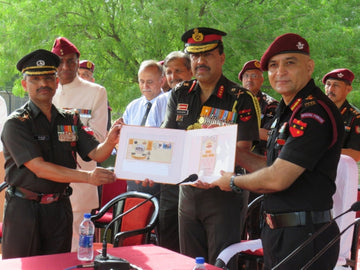The Military Nursing Service (MNS), an integral part of the Armed Forces of India, plays a vital role in providing healthcare to military personnel and their families. As part of this esteemed service, MNS officers are not only tasked with delivering high-quality medical care but also upholding the values and responsibilities associated with military service. Understanding the pay scale, salary, and allowances for MNS officers is essential for aspiring candidates, serving professionals, and those interested in the intersection of nursing and military service. This article will take a comprehensive look at the compensation structure for MNS officers, contextualizing their pay against their significant responsibilities.
Historical Context
Military nursing in India dates back to the 1880s, during colonial rule. The British Indian Army formed the first Nursing Service, laying the groundwork for the present MNS. The MNS was officially established in 1963, recognizing the need for structured, professional nursing services within the military. Over the years, the role of MNS officers has expanded, particularly with advancements in military medicine and the evolving needs of healthcare within the Armed Forces. Their contributions during both peacetime and conflict are invaluable, making a thorough understanding of their compensation and allowances essential.
Pay Matrix and Bands
The pay structure for MNS officers is designed to be competitive and equitable, reflecting the challenging nature of their duties. They fall under the government’s pay matrix, which has become the standard for salaried employees in the Armed Forces.
Breakdown of Pay Bands
-
Pay Bands:
- ₹15,600 - ₹39,100
- ₹37,400 - ₹67,000
-
Grade Pay:
The grade pay varies significantly depending on the rank and experience, with scales set at:
- ₹5,400
- ₹5,700
- ₹6,100
- ₹6,600
- ₹7,600
- ₹8,400
- ₹9,000
This structured approach helps ensure that the salaries of MNS officers are in line with their responsibilities and contributions, while also being competitive with civilian career paths in nursing.
Training and Initial Salary
To become a commissioned officer in the MNS, candidates undergo a rigorous six-month training program. During this period, they receive a monthly stipend of approximately ₹8,000. This initial training is not only a foundation for their military career but also a vital period for developing the essential skills required for their roles.
Post-Training Commissioning
Upon successful completion of the training, recruits are commissioned as Lieutenants. At this point, they transition from a stipend to a salary under the military pay scale. The pay matrix places a Lieutenant at Level 10, providing a structured salary and benefits package, ensuring officers are adequately compensated for their service.
Rank and Salary
The salary structure for MNS officers is clearly defined according to rank, with specific levels corresponding to distinct responsibilities and years of service.
Salary Breakdown by Rank
-
Lieutenant:
- Basic Pay under Level 10
- Starting Salary: ₹56,100 (basic pay) plus allowances
-
Captain:
- Basic Pay under Level 10A
- Salary range: ₹61,300 to ₹68,000
-
Major:
- Basic Pay under Level 11
- Salary range: ₹69,200 to ₹78,500
-
Lieutenant Colonel:
- Basic Pay under Level 12
- Salary range: ₹1,21,200 to ₹1,24,000
-
Colonel and other senior ranks:
- Salaries can climb significantly with factors such as years of service and additional responsibilities.
This tiered structure promotes not only a sense of order within the ranks but also rewards dedicated service through upward mobility.
Allowances and Benefits
In addition to the core salary, MNS officers benefit from a range of allowances designed to support their lifestyle and compensate for the unique challenges faced by military personnel.
Types of Allowances
-
Dearness Allowance (DA):
- Adjusted periodically to align with the cost of living, this allowance mitigates inflation's impact on officers' financial well-being.
-
House Rent Allowance (HRA):
- This varies based on the officer’s posting location, ensuring that rent burdens are manageable.
-
Transport Allowance:
- Offered to cover commuting expenses, this allowance supports officers who travel for work or during training periods.
-
Uniform Allowance:
- Recognizing the costs associated with maintaining military attire, this allowance helps ensure that officers can present themselves professionally at all times.
-
Medical and Other Benefits:
- MNS officers have access to premier healthcare facilities and a range of welfare benefits, including provisions for families, which underscore the commitment to holistic wellbeing.
Unique Benefits of Military Service
Apart from financial compensation, MNS officers enjoy several non-monetary benefits, such as job security, opportunities for personal development, and access to military resources. These factors significantly enhance the overall value of a career in the MNS.
Comparative Analysis
When evaluating the compensation for MNS officers against civilian nursing professions, several critical differences emerge.
Civilian vs. Military Nursing
-
Base Salary:
Civilian nurses, especially those in specialized fields, may command higher base salaries. For instance, specialized nurses in urban settings can earn upwards of ₹80,000 monthly.
-
Job Security:
Military nursing offers a level of job security and stability that is often unmatched in civilian roles, particularly during economic downturns.
-
Additional Perks:
MNS officers receive numerous allowances, bonuses, and the potential for educational benefits that are often limited in the civilian sector.
Career Growth and Additional Perks
One of the significant advantages of a military nursing career is the clear pathways for professional growth and advancement. MNS officers have opportunities for promotion, leadership roles, and specialized training programs designed to enhance their skills.
Educational Advancement
Officers are encouraged to pursue further education, often supported by the MNS through scholarships and training programs. This contributes to a culture of continuous learning, allowing officers to stay at the forefront of medical advancements while also preparing them for higher leadership roles.
Deployment Benefits and Bonuses
MNS officers may also receive bonuses for deployments, particularly to critical areas where their skills are urgently required. These bonuses serve as both financial incentives and acknowledgments of the unique contributions made during adverse conditions.
Challenges and Solutions
While the pay scale and allowances for MNS officers are competitive, challenges remain.
Common Challenges
-
Work-Life Balance:
The demanding nature of military nursing can lead to challenges in maintaining a healthy work-life balance, particularly for those with familial responsibilities.
-
Emotional and Physical Strain:
In high-stress scenarios, officers may experience significant emotional and physical strains, necessitating robust support systems.
Proposed Solutions
-
Enhanced Support Systems:
Establishing robust mental health support and family assistance programs is essential for mitigating stressors faced by MNS officers.
-
Flexible Work Schedules:
Introducing more flexible schedules can help alleviate pressure, allowing officers to manage personal and professional commitments better.
Future Trends and Predictions
The landscape of military nursing is poised for significant changes, influenced by advancing medical technology and evolving healthcare needs.
Technological Integration
With the integration of telemedicine and advanced medical technology, MNS officers may find themselves increasingly involved in innovative healthcare delivery methods. This evolution requires ongoing training and adaptation to new platforms, creating new opportunities and challenges.
Emphasis on Wellbeing
There is a growing trend toward focusing on the overall wellbeing of military personnel, including MNS officers. Programs that prioritize mental health, physical wellness, and job satisfaction are expected to become even more prominent, reflecting broader societal shifts toward holistic health approaches.
Conclusion
The structure of pay, salary, and allowances for MNS officers is crafted to reflect their invaluable contributions and the unique challenges of military service. While they may not match the highest salaries in civilian nursing roles, the extensive benefits, job security, and opportunities for advancement present a compelling case for those looking to pursue a nursing career within the armed forces.
For aspiring candidates, understanding this compensation framework is vital in making informed career decisions. As the role of MNS officers evolves with new challenges and advancements, maintaining a competitive and supportive pay structure will be essential in attracting and retaining the dedicated professionals integral to military healthcare. The valor and commitment shown by MNS officers deserve recognition, not only through their salaries but also through the comprehensive support and career advancement opportunities provided to them.





